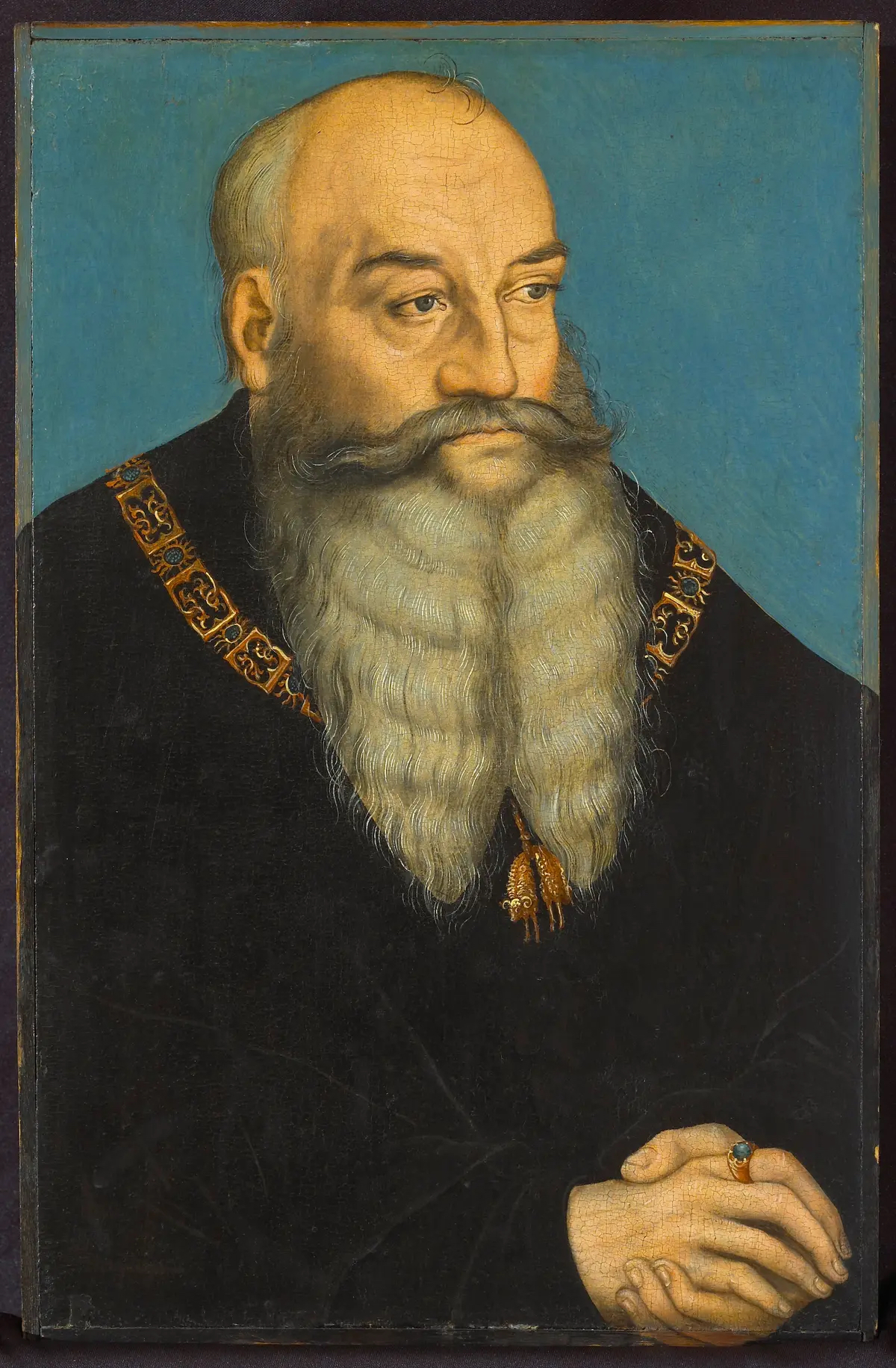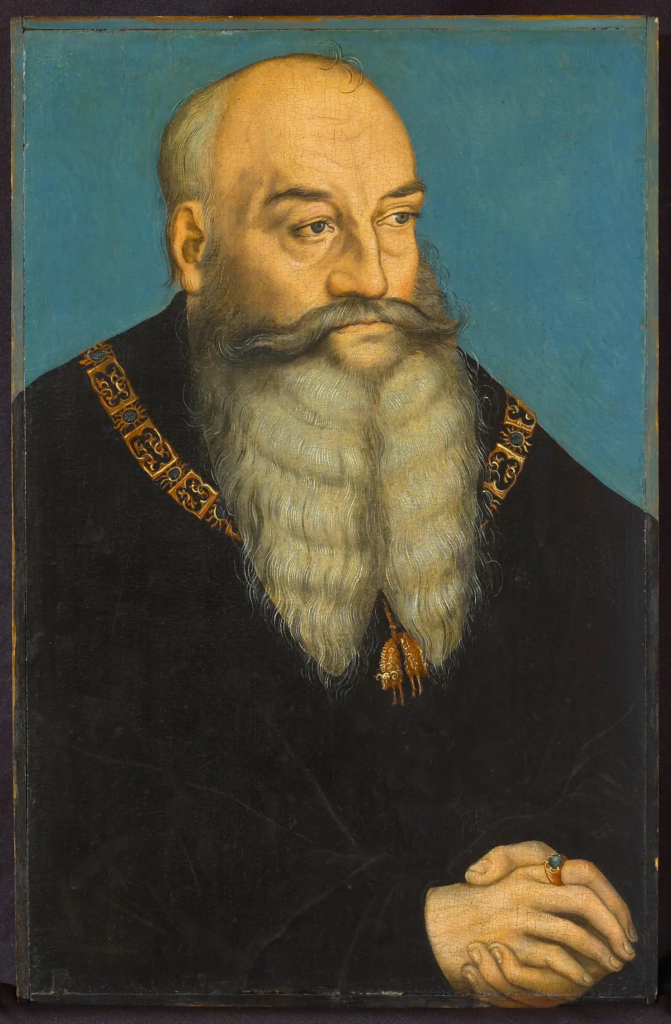
A 16th-century portrait attributed to the studio of Lucas Cranach the Elder will leave the collection of the Allentown Museum of Art in Pennsylvania after the work was restituted to the relatives of its original owner, a Jewish judge whose family was persecuted during World War II.
The work will be auctioned at Christie’s in January 2025 after the museum reached a private settlement with the heirs of Henry Bromberg, who sold the painting under a punitive tax law imposed on Jews during Nazi occupation and later sought refuge in the US.
A value for the work has not been disclosed. Under the legal agreement struck between the museum and Bromberg heirs, proceeds from the January sale will be divided between the two parties.
Portrait of George the Bearded, Duke of Saxony (ca. 1534) has been in the museum’s collection since 1961, when the institution bought it from a private dealer in New York in 1961. Prior to the painting circulating on the market, records indicate that the work, along with a portion of the Bromberg collection, was acquired by Paris dealer Allen Loebl in 1938, three years after Bromberg and his wife, Hertha, fled Germany for Switzerland in 1935. They inherited the work and other paintings from Bromberg’s father, an Old Masters collector.
In a statement, Max Weintraub, the president and chief executive of the Allentown Art Museum, said the museum had given up legal title to the work after learning the Bromberg’s relatives were seeking its return via their Berlin-based lawyer, Imke Gielen, who first contacted the museum in 2022. “We hope that this voluntary act by the museum will inform and encourage similar institutions to reach fair and just solutions,” Weintraub said.
The Cranach is one of an estimated 90 works that Bromberg’s heirs have sought to recover, according to the German Lost Art database, which tracks restitution claims. In 2016, the French government returned a 16th-century Flemish portrait and a painting of the crucifixion to Bromberg’s relatives.


